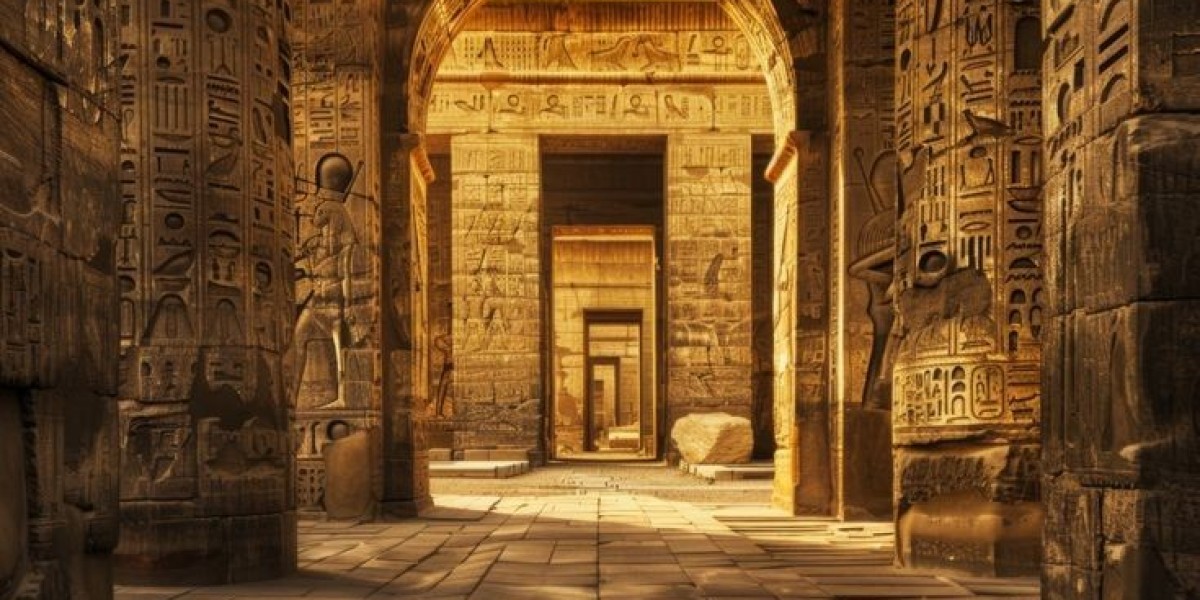The allure of Ancient Egypt continues to captivate people across the globe with its profound mystique, cultural achievements, and historical significance. Here’s a deeper look into what makes Ancient Egypt so fascinating:
1. Iconic Monuments and Architecture
- Pyramids of Giza: The Great Pyramid of Giza, built as a tomb for Pharaoh Khufu, remains one of the most remarkable engineering feats in history. The complex also includes the Pyramid of Khafre and the Pyramid of Menkaure, as well as the Great Sphinx.
- Temples: Magnificent temples like Karnak and Luxor, with their towering columns and intricate carvings, showcase the grandeur of Egyptian architecture and the importance of religion in daily life.
- Tombs: The Valley of the Kings, home to the tombs of numerous pharaohs including Tutankhamun, is renowned for its elaborate decorations and the treasures found within.
2. Rich Mythology and Religion
- Pantheon of Gods: Ancient Egyptian religion is rich with a diverse array of gods and goddesses such as Ra (the Sun God), Osiris (God of the Afterlife), Isis (Goddess of Magic and Motherhood), and Anubis (God of Mummification). These deities played central roles in myths and rituals.
- Afterlife Beliefs: The Egyptians’ belief in the afterlife was intricate, involving detailed rituals for mummification and the journey to the next world. The “Book of the Dead” provided instructions for navigating the afterlife.
3. Innovations and Knowledge
El Gouna The Red Sea’s Hidden Gem for Spa and Relaxation
Spa Services in Hurghada From Makadi Bay to Soma Bay and El Gouna
- Hieroglyphics: The complex system of writing used by the ancient Egyptians is both beautiful and informative. The Rosetta Stone was crucial in deciphering hieroglyphics, unlocking a wealth of knowledge about Egyptian civilization.
- Medicine and Science: Egyptians made significant advances in medicine, including surgical techniques and herbal remedies. Their knowledge in mathematics and astronomy was also sophisticated, influencing later cultures.
4. Art and Culture
- Distinctive Art: Egyptian art is characterized by its unique style, including vibrant frescoes, detailed statues, and intricate jewelry. Artistic conventions were deeply symbolic, reflecting religious and cultural values.
- Daily Life: Artifacts such as pottery, jewelry, and daily objects provide a window into everyday life in Ancient Egypt, illustrating everything from fashion and food to social structures.
5. Legendary Figures
- Pharaohs: Figures such as Ramses II, Tutankhamun, and Cleopatra VII are legendary. Ramses II, known as Ramses the Great, was a prolific builder and military leader. Tutankhamun's nearly intact tomb captured imaginations worldwide, while Cleopatra remains a symbol of both power and tragedy.
- Cleopatra VII: The last active ruler of the Ptolemaic Kingdom of Egypt, Cleopatra is remembered for her political acumen, her romantic liaisons with Julius Caesar and Mark Antony, and her dramatic death.
6. Archaeological Discoveries
- Excavations: Ongoing archaeological work continues to uncover new artifacts and sites, enhancing our understanding of Ancient Egyptian civilization. Discoveries such as the tomb of Tutankhamun and the unearthing of lost cities add to the excitement.
- Museums: Museums like The Egyptian Museum in Cairo, The British Museum, and The Louvre house extensive collections of Egyptian artifacts, making them key destinations for those interested in Ancient Egypt.
7. Cultural Legacy
- Influence on Modern Culture: The symbols and myths of Ancient Egypt have influenced modern art, literature, movies, and even fashion. The grandeur of Egyptian motifs often appears in contemporary design and storytelling.
- Ongoing Research: The study of Ancient Egypt is a dynamic field, with new research continually reshaping our understanding of its history, culture, and influence.
The allure of Ancient Egypt lies in its combination of awe-inspiring achievements, complex beliefs, and the enduring mysteries that continue to captivate scholars, tourists, and enthusiasts alike









